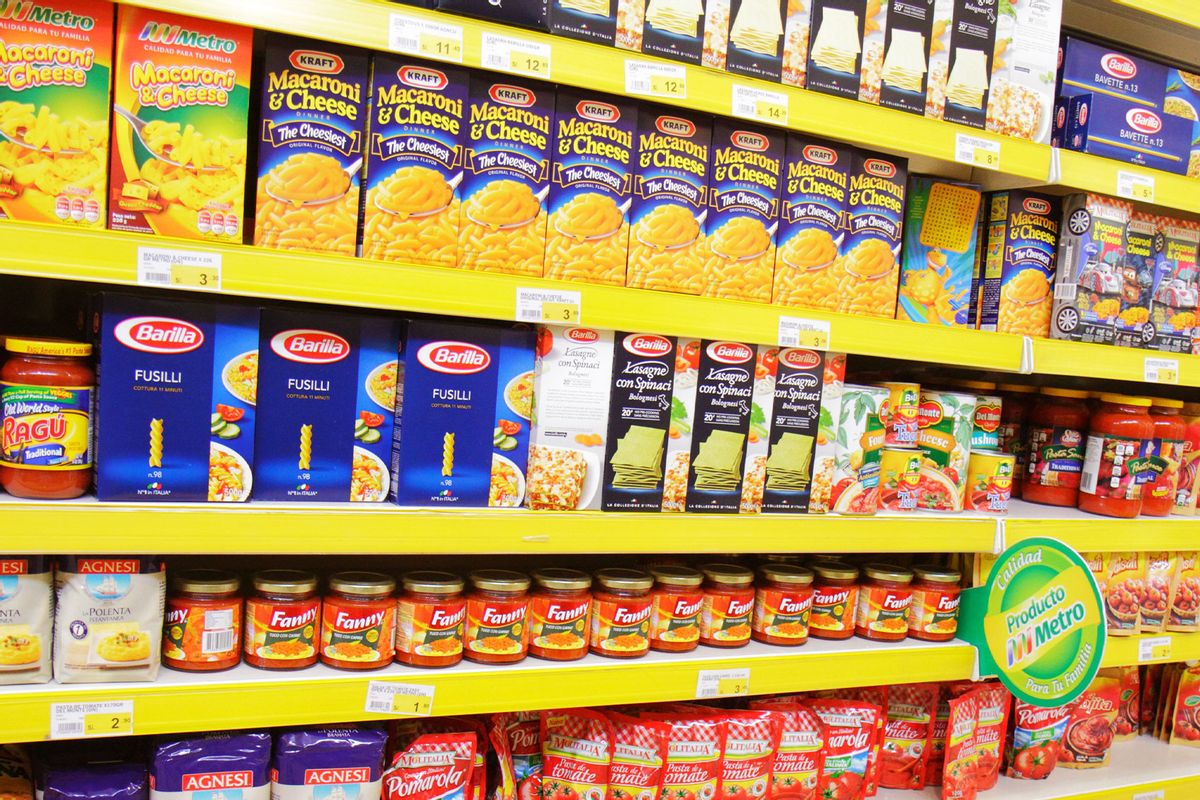Amid the Great Depression, Grant Leslie, a St. Louis, Missouri, salesman, came up with the ingenious idea of selling packaged macaroni pasta alongside cheese. The meal itself was cheap yet palatable and nourishing. So, Leslie went about attaching packets of grated cheese to boxes of pasta, which quickly became a huge hit.
In 1937, Kraft took inspiration from Leslie and introduced its own brand of boxed macaroni and cheese. Priced at less than 20 cents per box, Kraft’s newfound, nonperishable product was revered as an affordable option for Americans looking to feed their families. Kraft sold over 8 million boxes in just one year and has since enjoyed many successes — both during times of hardship and prosperity.
Kraft Mac & Cheese remains a favorite comfort food amongst budget-conscious consumers today. The packaged food item may not be the healthiest meal option available, but it does offer something that’s simple to make and delicious. Then, in November, news of the brand’s first-ever plant-based product made headlines. Called “Kraft NotMac&Cheese,” the new mac and cheese alternative is currently available in two flavors — original and white cheddar with shells — each priced at $3.49 per box. It’s also made in partnership with TheNotCompany, Inc., a food-tech company producing plant-based alternatives to animal-based food products.
While many may regard boxed mac and cheese as junk food, Kraft is not alone in adapting their formula to be more focused on customers’ health and dietary goals.
The company faces competition from several pasta-focused brands that have marketed themselves as healthy options. Goodles, the noodle company that partnered with “Wonder Woman” star Gal Gadot in 2021 and contains added fiber and protein, sells two plant-based mac and cheese items: the gluten-free Vegan Be Heroes pasta and the Vegan Is Believin’ pasta. Banza, Daiya and Annie’s also offer similar dairy-free products.
A simple trip to the supermarket shows just how much the macaroni and cheese aisle has expanded in recent years, with a kaleidoscopic array of products touting the nutritional benefits of their contents. But how did we get to the point where boxed macaroni and cheese is now a health food (or at least a “healthier” food than it used to be)?
A large part of this development mimics the way the overall market has adapted to meet customers’ increasing interest in plant-based eating.
“The Kraft Heinz Not Company creates plant-based versions of fan-favorite foods that taste like the real thing, yet don’t require people to drastically change their eating habits,” said Lucho Lopez-May, CEO of The Kraft Heinz Not Co., per Food Business News. “Leveraging the strengths of both companies, we’re offering the creamy and comforting experience Kraft Mac & Cheese fans have loved for over 85 years — without the dairy.”
We need your help to stay independent
Kraft’s latest initiative is part of an ongoing trend of boxed mac and cheese brands embracing veganism. Plant-based product sales surged 44.5% in 2022 to an astounding $8 billion, according to the Plant-Based Foods Association. Studies show that consumers also have a huge appetite for vegan goods. And many are even intent on eating more plant-based foods.
Last year, market research firm Wakefield Research surveyed 1,000 nationally representative U.S. adults for Saputo Dairy USA's Vitalite dairy-free cheese brand. The firm found that a third (31%) of Americans substituted meat, cheese or dairy with a plant-based alternative in an average of eight meals a week. It also revealed that 34% of Americans expressed some interest in adopting a vegan lifestyle, and 18% said they’d be more open to doing so if they could make non-vegan exceptions, “which indicates that the plant-based food market has room to grow.”
Want more great food writing and recipes? Subscribe to Salon Food's newsletter, The Bite.
This is especially true among younger consumers. Multiple studies have shown that Gen Z is consuming less meat and dairy than prior generations and are making purchasing decisions based on those preferences as the Brightfield Group, a marketing research firm, noted in 2023.
“Although Gen Z is not any more vegan or vegetarian than other generations, almost 60% of these consumers report that plant-based foods are not only better for the environment but also healthier,” they wrote. “Even over the last year, [data] reveals a decline in purchases of traditional animal-based products. With about a 9% decline in purchases of bacon (pork) and a 7% decline in purchases of chicken, it's clear that Gen Z's preferences are making an impact.”
In 2019, The Guardian described a phenomenon called the “vegan halo” effect, by which companies that have gone plant-based have reaped the rewards: boosts in sales. Indeed that’s what the Kraft Heinz Company (KHC) seeks to accomplish as it looks to satisfy changing consumer tastes for processed foods. KHC, which previously admitted that some of its most iconic products have become “a little bit dusty,” has since been innovating its selection of foods in hopes of increasing the company’s net sales by $2 billion through 2027.
Kraft’s all-new vegan cheese sauce is made with fava bean protein and coconut oil powder, and has a “similar taste, look and feel to dairy-based mac and cheese,” the company told CNN. Those who have taste-tested Kraft NotMac&Cheese said they were pleasantly surprised. The texture and consistency “were nearly identical” to the dairy version, but its taste “was not nearly as similar,” said one reviewer for The Kitchn. In fact, the taste was described as “almost sweet,” akin to a butternut squash mac and cheese and not the Kraft Original.
Kraft NotMac&Cheese is certainly catching the attention of its consumers. As for whether it will fare well and help boost company profits, only time will tell.

Shares